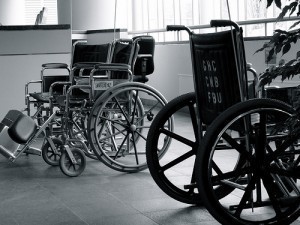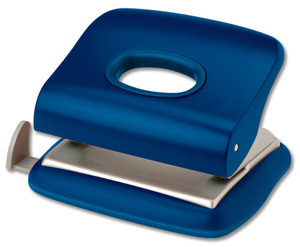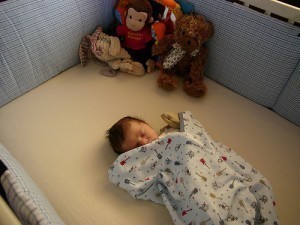Babies develop differently both inside the mother’s womb and after birth. Inside the mother’s womb there are several factors that affect the baby’s development such as the mother’s diet and how much of what she eats is absorbed by the baby, vitamin intake and genetics; among others.
Unfortunately if the mother has vices such as smoking and drinking alcoholic beverages and she hasn’t stopped taking these even while pregnant, these will have an adverse effect on the fetus’ development.
After birth, there are also several factors that may affect the baby’s growth not least of which is genetics as well as number of feedings per day.
A nine-pound baby is more or less 4.08 kilograms and will be about 20 inches long. Usually, a 9-pound baby will already be in their first month after birth.
There are however big babies born at nine pounds, usually via C-Section as this size is too large to pass through the birth canal.
After birth, babies normally shed about ten percent of their birth weight a few days after birth but they should regain the weight back as they start to progress towards their second and third months.
Do You Have Reason for Concern?
Parents, mothers most especially, will tend to worry about their baby’s growth progress particularly when they start comparing their baby’s size to those of other’s.
However, before you get all worked up probably over nothing, check the following premises just to see if there is something to be concerned about:
– If you are breastfeeding your baby, between one to three months, feedings will usually be around eight up to twelve times every twenty-four hours.
– For bottle-fed babies, feedings would normally be every three to four hours within a twenty-four hour period.
– Breastfeeding babies usually take up to ten minutes per feeding while bottle-fed babies generally start at three to four ounces during the 1st month with an additional ounce every feeding time for succeeding months.
– Babies’ stool is generally soft and more liquid in consistency if they are breastfed while bottle-fed babies’ stool is a bit more firm.
If you are concerned that your baby is not eating enough or is eating too much; does not seem to gain weight or gains weight quite rapidly and there is discrepancy in stool consistency as well as frequency; it is recommended that you discuss your concerns with your pediatrician.
Your doctor will be able to give you instructions on feedings to regulate their growth progress as well as the baby’s bowel movements.






